Ki-Ung Song
ERGO: Efficient High-Resolution Visual Understanding for Vision-Language Models
Sep 26, 2025Abstract:Efficient processing of high-resolution images is crucial for real-world vision-language applications. However, existing Large Vision-Language Models (LVLMs) incur substantial computational overhead due to the large number of vision tokens. With the advent of "thinking with images" models, reasoning now extends beyond text to the visual domain. This capability motivates our two-stage "coarse-to-fine" reasoning pipeline: first, a downsampled image is analyzed to identify task-relevant regions; then, only these regions are cropped at full resolution and processed in a subsequent reasoning stage. This approach reduces computational cost while preserving fine-grained visual details where necessary. A major challenge lies in inferring which regions are truly relevant to a given query. Recent related methods often fail in the first stage after input-image downsampling, due to perception-driven reasoning, where clear visual information is required for effective reasoning. To address this issue, we propose ERGO (Efficient Reasoning & Guided Observation) that performs reasoning-driven perception-leveraging multimodal context to determine where to focus. Our model can account for perceptual uncertainty, expanding the cropped region to cover visually ambiguous areas for answering questions. To this end, we develop simple yet effective reward components in a reinforcement learning framework for coarse-to-fine perception. Across multiple datasets, our approach delivers higher accuracy than the original model and competitive methods, with greater efficiency. For instance, ERGO surpasses Qwen2.5-VL-7B on the V* benchmark by 4.7 points while using only 23% of the vision tokens, achieving a 3x inference speedup. The code and models can be found at: https://github.com/nota-github/ERGO.
Efficient LLaMA-3.2-Vision by Trimming Cross-attended Visual Features
Apr 01, 2025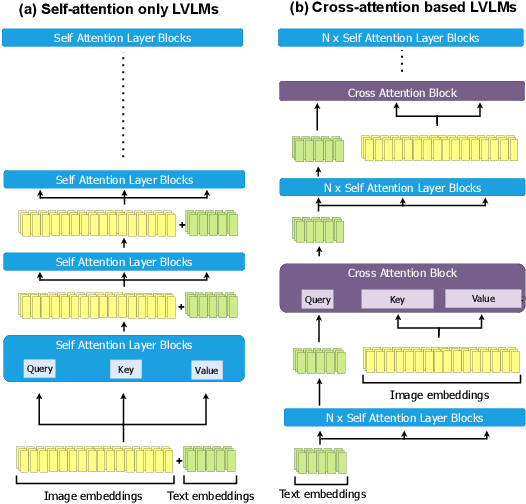
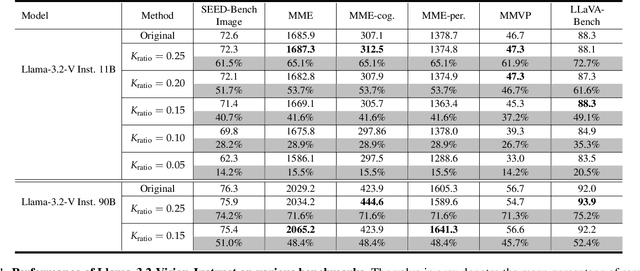
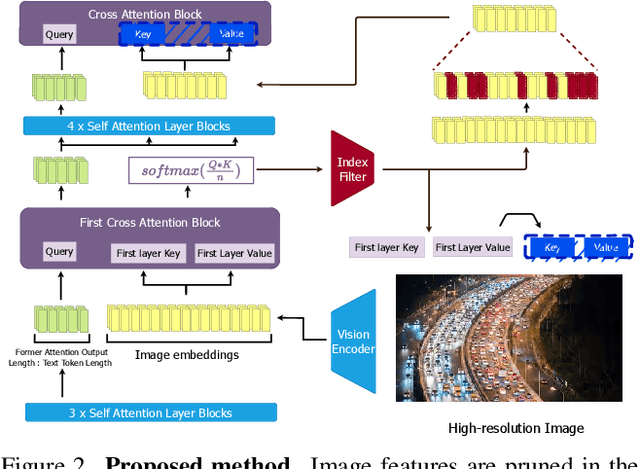

Abstract:Visual token reduction lowers inference costs caused by extensive image features in large vision-language models (LVLMs). Unlike relevant studies that prune tokens in self-attention-only LVLMs, our work uniquely addresses cross-attention-based models, which achieve superior performance. We identify that the key-value (KV) cache size for image tokens in cross-attention layers significantly exceeds that of text tokens in self-attention layers, posing a major compute bottleneck. To mitigate this issue, we exploit the sparse nature in cross-attention maps to selectively prune redundant visual features. Our Trimmed Llama effectively reduces KV cache demands without requiring additional training. By benefiting from 50%-reduced visual features, our model can reduce inference latency and memory usage while achieving benchmark parity.
Applying Regularized Schrödinger-Bridge-Based Stochastic Process in Generative Modeling
Aug 15, 2022

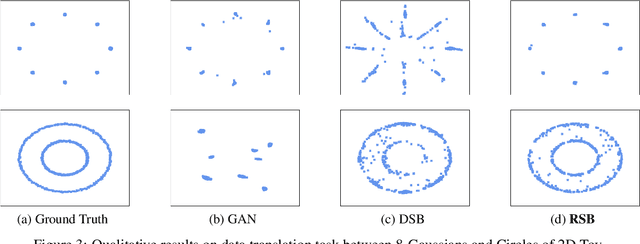
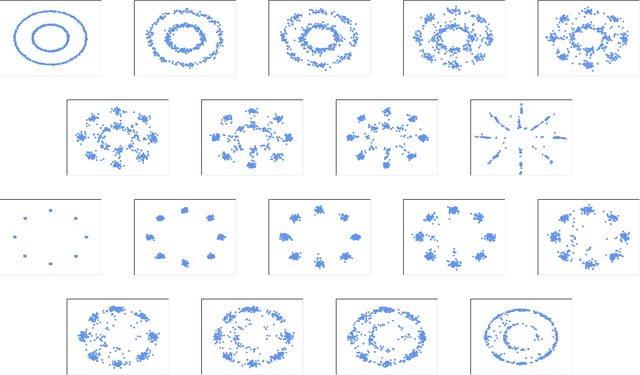
Abstract:Compared to the existing function-based models in deep generative modeling, the recently proposed diffusion models have achieved outstanding performance with a stochastic-process-based approach. But a long sampling time is required for this approach due to many timesteps for discretization. Schr\"odinger bridge (SB)-based models attempt to tackle this problem by training bidirectional stochastic processes between distributions. However, they still have a slow sampling speed compared to generative models such as generative adversarial networks. And due to the training of the bidirectional stochastic processes, they require a relatively long training time. Therefore, this study tried to reduce the number of timesteps and training time required and proposed regularization terms to the existing SB models to make the bidirectional stochastic processes consistent and stable with a reduced number of timesteps. Each regularization term was integrated into a single term to enable more efficient training in computation time and memory usage. Applying this regularized stochastic process to various generation tasks, the desired translations between different distributions were obtained, and accordingly, the possibility of generative modeling based on a stochastic process with faster sampling speed could be confirmed. The code is available at https://github.com/KiUngSong/RSB.
FS-NCSR: Increasing Diversity of the Super-Resolution Space via Frequency Separation and Noise-Conditioned Normalizing Flow
Apr 20, 2022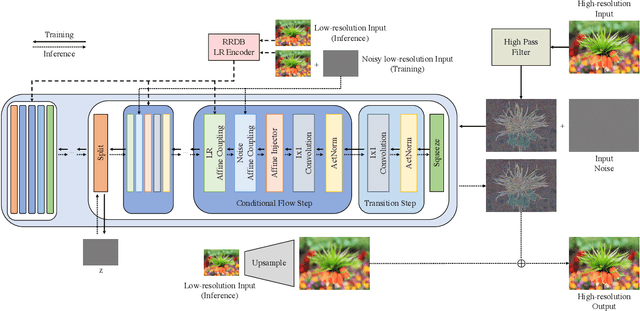
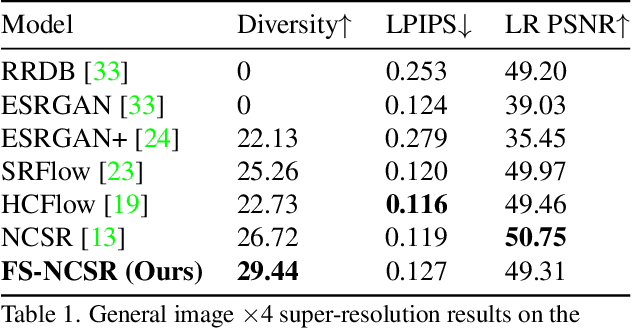
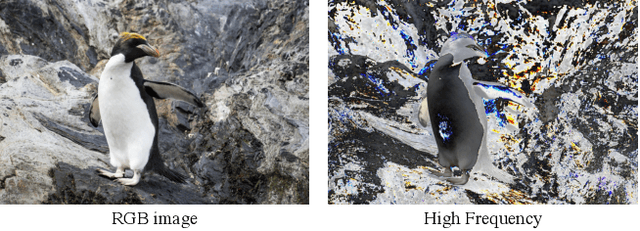
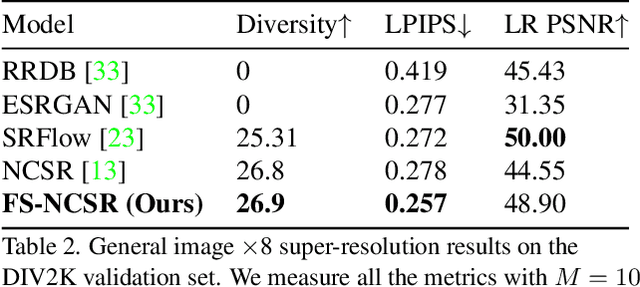
Abstract:Super-resolution suffers from an innate ill-posed problem that a single low-resolution (LR) image can be from multiple high-resolution (HR) images. Recent studies on the flow-based algorithm solve this ill-posedness by learning the super-resolution space and predicting diverse HR outputs. Unfortunately, the diversity of the super-resolution outputs is still unsatisfactory, and the outputs from the flow-based model usually suffer from undesired artifacts which causes low-quality outputs. In this paper, we propose FS-NCSR which produces diverse and high-quality super-resolution outputs using frequency separation and noise conditioning compared to the existing flow-based approaches. As the sharpness and high-quality detail of the image rely on its high-frequency information, FS-NCSR only estimates the high-frequency information of the high-resolution outputs without redundant low-frequency components. Through this, FS-NCSR significantly improves the diversity score without significant image quality degradation compared to the NCSR, the winner of the previous NTIRE 2021 challenge.
 Add to Chrome
Add to Chrome Add to Firefox
Add to Firefox Add to Edge
Add to Edge